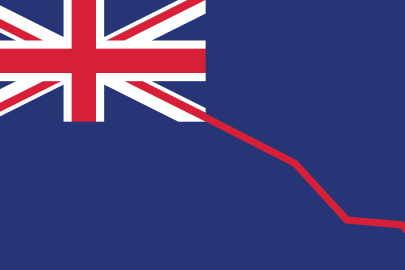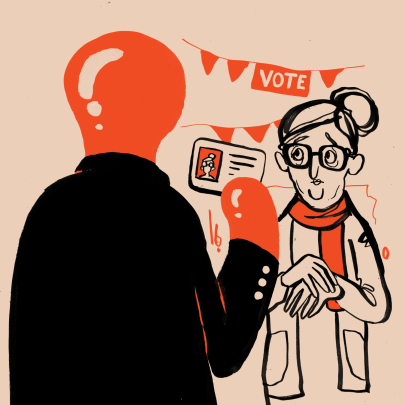Nov 16, 2016 Politics

Our columnist hopes he’s wrong, but the early signs aren’t good that the new mayor has what it takes to lead.
There’s the 90s version, certain Labour turning left was a mistake and working to undermine Helen Clark. There’s the 2000s Phil Goff, who loyally carried out her foreign policy, signed the free-trade deal with China and launched the negotiations with the United States for the Trans Pacific Partnership. And then of course there’s the version of the 2010s: first being pushed by the Labour left to front the most left-wing Labour policy programme since Norman Kirk and then — despairing of Labour’s further march to the left under David Cunliffe and Andrew Little — winning the Auckland mayoralty wearing National Party blue (while holding on to his seat in Parliament in the meantime, just in case).
There’s nothing wrong with someone evolving their political outlook through their lives. But what characterises Goff’s lifetime in politics is deep small-c conservatism and that he’s a follower, not a leader. If he can’t break that pattern, he’s doomed to be a one-term mayor.
Goff was always a shoo-in. Skilfully managed by the left-leaning Labour strategist David Lewis, the centrist Labourite Conor Roberts and the right-leaning red James Bews-Hair, Goff framed the whole election process as being about his own intentions, starting more than a year ago with a contrived debate over whether he would stand. While Michelle Boag and Nikki Kaye rushed around recruiting and promoting Vic Crone, John Key and most of the Cabinet were always perfectly happy for the pliable Goff to take the chair.
Despite being assured of a win, Goff’s risk-aversion saw him make one unaffordable and unnecessary promise after another. By election day, he had pledged an extra $18 billion in new infrastructure spending, on top of the existing $18 billion the council already plans over the next decade, for which it has no idea how to pay except by borrowing.
At the same time, Goff has promised not to increase rates by more than 2.5 per cent, not to let borrowing risk the council’s AA credit rating and not to sell any “strategic assets”. He says he may sell Remuera Golf Club to be turned into cheap housing. A 10-year-old child could work out this doesn’t add up. The fear of losing has recklessly put him into a position where he’ll have to break at least a couple of these promises.
Key, English and Bridges aren’t going to take orders from Mr 18 Per Cent.
Goff, though, seems to think he can bridge the gap by bullying central government into coughing up. If so, he has badly misread his true political position. Winning just 18 per cent of eligible voters, Goff really can’t claim any mandate. Even his 47 per cent of votes cast was well below expectations, and less than Len Brown’s 48 per cent in 2013 and John Key’s 49 per cent in Auckland in 2014.
With 112,000 votes compared with Goff’s 188,000, Vic Crone exceeded expectations despite having no clear messages and a shambolic campaign apparatus, indicating that is the absolute National Party bedrock in the city. Goff isn’t going to get anywhere demanding money to pay for his reckless promises from Key, Finance Minister Bill English and Transport Minister Simon Bridges. He may feel emboldened by his first major election win after more than 40 years of trying, but Key, English and Bridges have male egos, too, and aren’t going to take orders from Mr 18 Per Cent.
Moreover, were Key, English and Bridges to be bullied into paying for Goff’s promises, what message would that send to Christchurch’s Lianne Dalziel, Hamilton’s Andrew King and Wellington’s Justin Lester as they seek central government indulgences for their cities? Some humility is needed and Goff will need to break at least one of his innumerate promises if the government is to take him seriously.
Where Goff needs to put the stick about is in his own new empire. Chief executive Stephen Town has led the council to a 15 per cent approval rating among Aucklanders compared with the 80 per cent commonly achieved by major organisations. On that alone, a symbolic sacking is required. Worse, Town in his three years in the job has made very clear to the business community he believes he’s the real power in the city.
Mere political commitments made by the mayor or councillors mean nothing to him. His own website reports that he is “responsible for leading Auckland Council”, not some mayor. If Town is out of control, it’s worse at board and senior management level at the likes of Auckland Council Investments and Ports of Auckland, who believe they are not just entitled but required to ignore the wishes of their ultimate shareholders.
Alarmingly, consistent with his habits of a lifetime, Goff focused inward in his first fortnight as mayor. There has been no ritual sacking of Town or anyone else. It seems it will be business as usual in the Auckland bureaucracy, with a begging bowl out to Wellington. If I am right and, after 40 years in politics, Goff still can’t bring himself to assert himself and lead, he’ll soon be as much of a political lame-duck as Brown over the last three years, and the city will drift. I hope he proves me completely wrong
This article first appeared in the November 2016 issue of Metro Magazine






